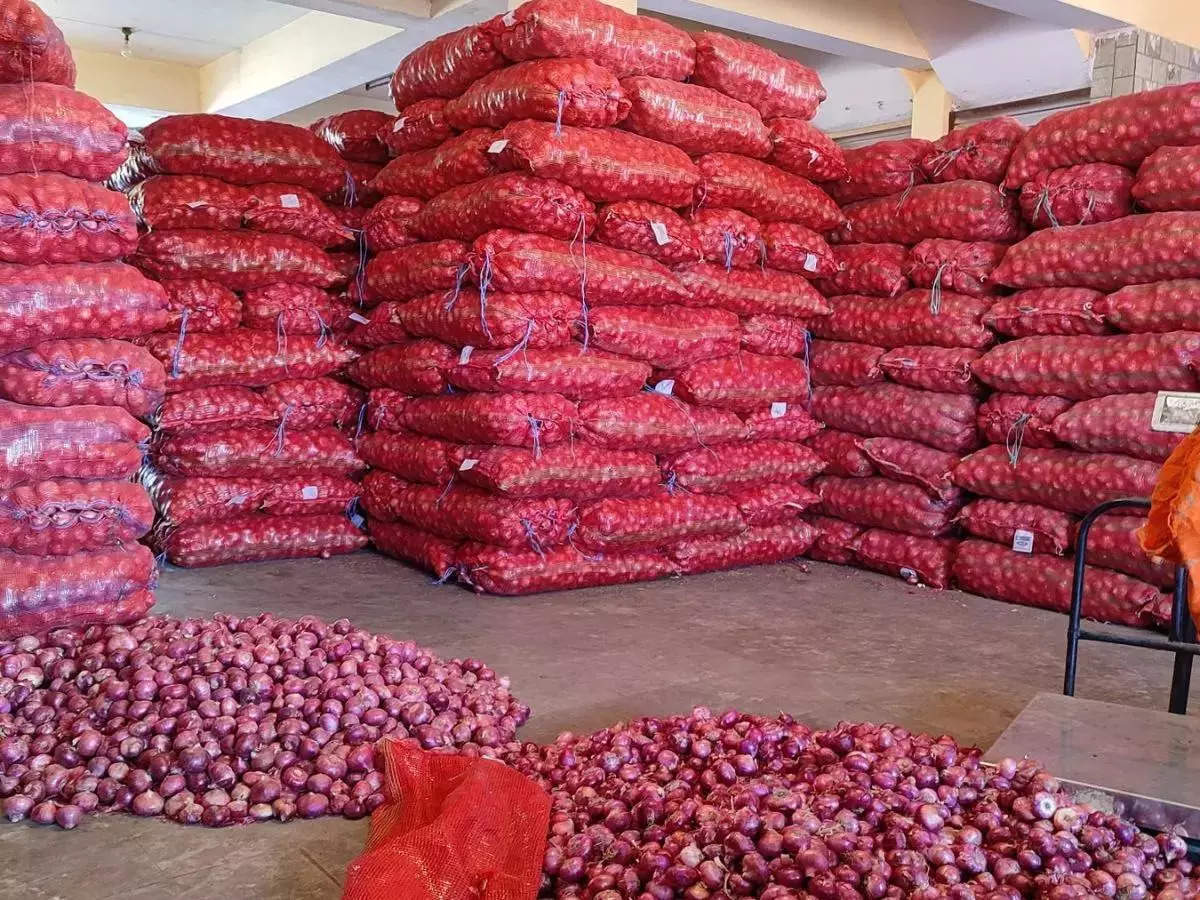
On December 8, the Centre banned onion exports till March 31 next year to increase domestic availability and keep prices under check. This has led to protests by onion farmers in Maharashtra’s Nashik district.
Briefing the media, Consumer Affairs Secretary Rohit Kumar Singh said, “There won’t be any impact of export ban on farmers as the government procurement is going on. So far this year, we have procured 5.10 lakh tonnes of onion and about 2 lakh tonnes kharif crop will be procured.”
Usually, the government procures rabi onion considering its long shelf life. However, for the first time, the government will procure the kharif crop to protect the interest of farmers and arrest spike in prices in retail markets.
The government is procuring onion to maintain a buffer stock and use it for market intervention to boost domestic availability and check prices. The government has raised buffer stock target to 7 lakh tonnes for the 2023-24 fiscal, against the actual stock of 3 lakh tonnes last year.
According to Singh, about 5.10 lakh tonnes of onion have been procured from farmers for the buffer stock, of which 2.73 lakh tonnes have been disposed of in wholesale mandis as part of its market intervention.About 20,718 tonnes in the retail market were sold at subsidised rates in 218 cities in the last 50 days, while retail sale is still underway, he said.Kumar said the market intervention will continue as the 2023 kharif output is expected to be lower marginally and the crop arrival is also delayed owing to weather reasons.
After disposal of 5.10 lakh tonnes of buffer onion in wholesale and retail markets, the government is left with a stock of 1 lakh tonnes of onion.
The government had procured the late kharif onion in a small quantity in February this year to protect farmers from price fall. But this time, the kharif crop will be procured for the first time for the market intervention, he said.
“By maintaining the onion buffer stock, the government sends a signal that it can offload anytime in the market if traders indulge in hoarding and jack up prices,” he added.
Singh said the onion prices were under check till June this year due to good rabi crop. However, July onwards, when stored onion is consumed during the lean period, the prices started increasing on concerns over rabi onion quality and late kharif sowing.
As a result in July, the government imposed Minimum Export Price (MEP) on onion to restrict outbound shipments. However, that did not help and exports had to be banned to protect the domestic interest, he said.
The secretary further said timely measures from buying/disposing of onion buffer stock to recent ban on exports have helped arrest the spike in the crop’s prices.
The all-India average retail prices have declined to Rs 56 per kg on December 8 from Rs 59.5 per kg on November 8 despite delay in kharif crop, climate issues that impacted kharif output, global supply constraint due to export ban imposed by Turkey and Egypt, he added.










